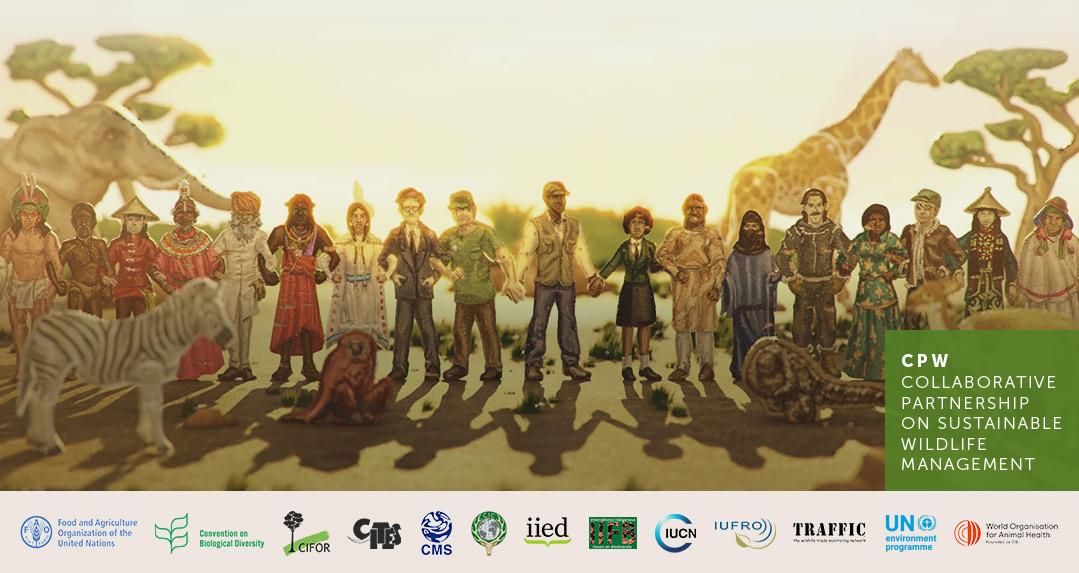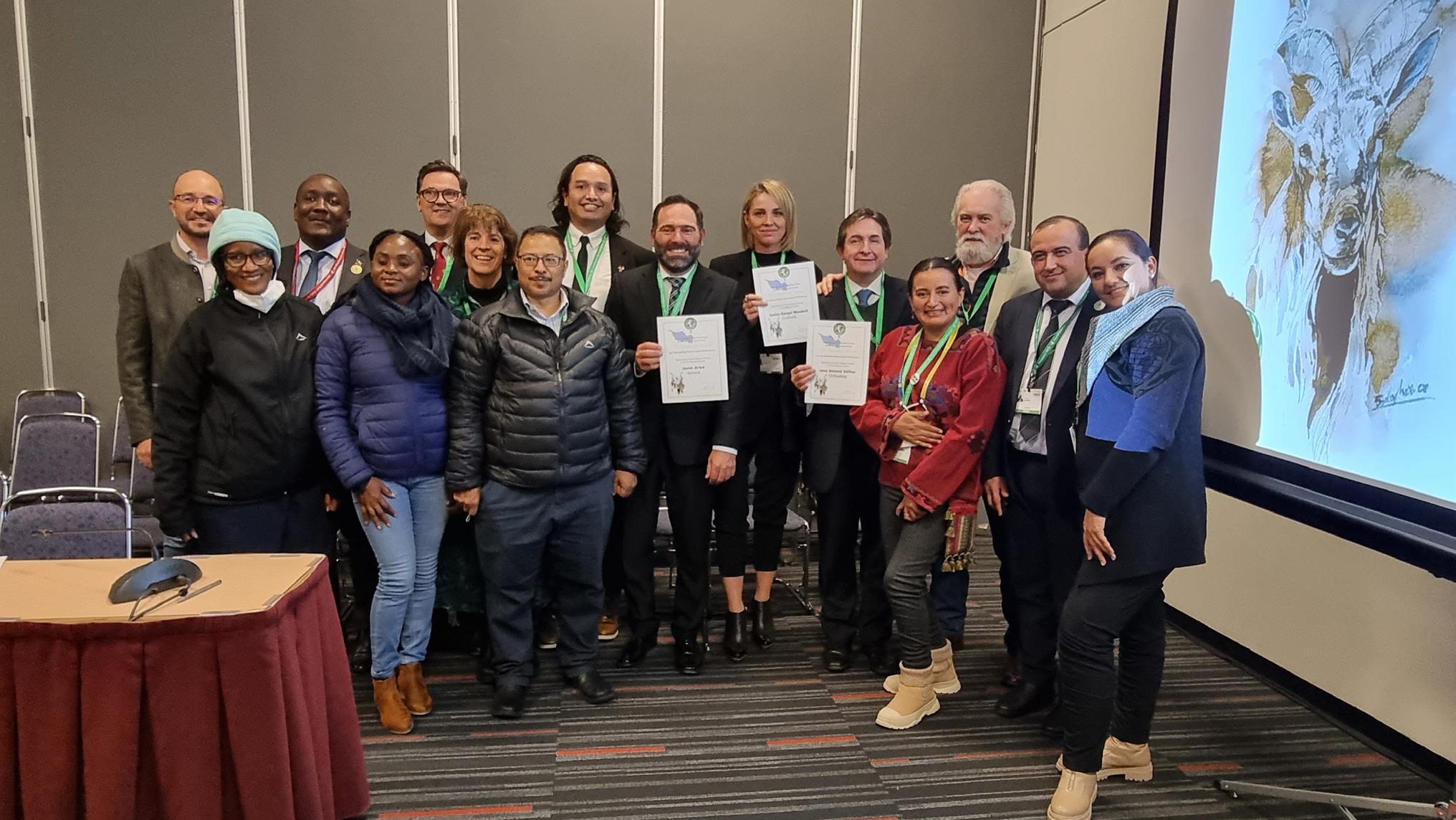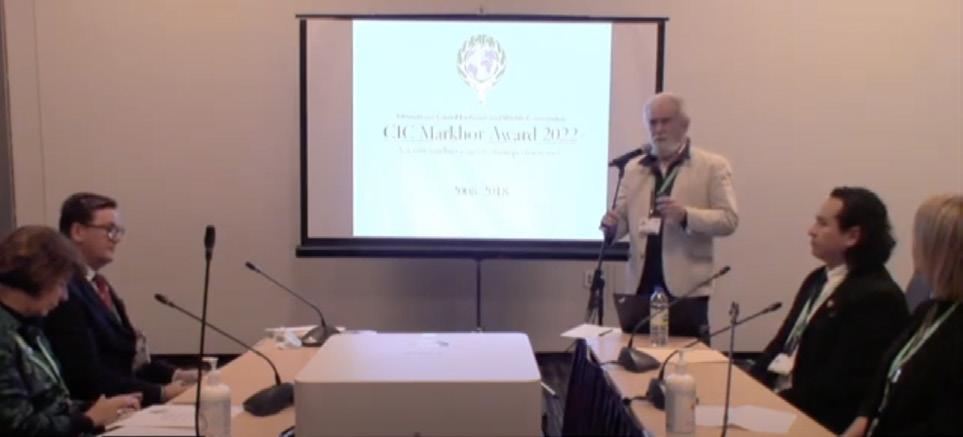
4 minute read
FOCUS
CBD RECOGNISES THE VALUE OF SUSTAINABLE USE FOR SUSTAINABLE DEVELOPMENT AND CONSERVATION
The Convention on Biological Diversity (CBD) has adopted a decision recognising the value of sustainable use in implementing the UN Sustainable Development Goals (SDGs) and the post 2020 global biodiversity framework. The news came as part of the Fifteenth Meeting of the Conference of the Parties to the CBD (CBD COP15) in Montreal, Canada.
CBD COP15 was a landmark event, with the foremost thinkers and practitioners working on biodiversity matters gathering to decide on the future of global conservation. Most notably, the post 2020 global biodiversity framework was adopted at the event, shaping the future of conservation activities for the coming years. As part of the conference proceedings, a decision was adopted by the CBD which inter alia recognised sustainable use – including the management of wildlife – as a tool that has contributed towards progress in the SDGs, the Aichi Biodiversity Targets while remaining relevant for the aforementioned global biodiversity framework. The Collaborative Partnership on Sustainable Wildlife Management (CPW) - a partnership of 14 international organisations including the CIC, which was a founding member – made a joint statement at CBD COP15 welcoming the decision.
In particular, the statement emphasised the importance of the decision in relation to continuing the work on sustainable wildlife

management that can significantly contribute to biodiversity conservation.
The CPW is a voluntary partnership consisting of organisations with mandates to promote the sustainable use and conservation of wildlife resources.
Each CPW member carries out work and programs relating to different aspects of sustainable use; through this multi-faceted approach, they are able to target a variety of thematic areas that can holistically address the SDGs and the global biodiversity framework.

Among the work areas currently being addressed within the CPW is food security, livelihoods, human-wildlife conflict, illegal and unsustainable hunting, as well as partnership coordination and outreach.
Now that this decision has been adopted, this sets a new path for better coordination between CPW members and the CBD.
In this regard, the CIC echoes the sentiments of the CPW joint statement, which highlights a willingness to continue working on relevant wildlife related topics going forward.
“We are preparing to meet the new sustainable wildlife management challenges that lie ahead, with the adoption of a new set of CPW thematic objectives.
Together, we bring rich expertise and technical knowledge that will directly contribute to the implementation of both the Decision on sustainable wildlife management and also the ambitious targets of the global biodiversity framework.”
Highlighting the contributions of the CPW within the CBD was a COP15 side-event, which explored the role of sustainable management of wild species by Indigenous Peoples and Local Communities in meeting the global biodiversity framework.
A progress report on the activities of the CPW since 2019 can be found on the CBD website.
FROM 0 TO 1,500: CIC MARKHOR AWARD WINNER REPATRIATES DESERT BIGHORN SHEEP IN MEXICO
The CIC is delighted to announce that the 2022 CIC Markhor Award has been presented to a project on Repatriating Desert Bighorn Sheep, which saw freerange desert bighorn sheep numbers grow from 0 to 1,500 across three Mexican states.
The Markhor Award is hosted at every CBD COP and is awarded to projects that link the conservation of biodiversity and human livelihoods through sustainable use. At this year’s CBD COP15 in Montreal, Canada the award was presented to the winners by Dr. Dilys Roe (Chair of the IUCN Sustainable Use and Livelihoods Specialist Group), who was on stage at the ceremony alongside Arno Wimpffen (CIC Deputy Director General), and Shane Mahoney (Head of the CIC Policy and Law Division).
After a thorough evaluation of all nominees, the project in Mexico stood out to the CIC jury for its innovative use of nursery herds to repatriate desert bighorn sheep. This is a practice that is already conducted in North America, which was applied and adapted to the host country to restore one of their historic species.

The use of nursery herds involves trapping and translocating desert bighorn sheep from areas where they are well populated to new areas


with little - or in this case no - individuals of the species. Through this method, a starting population of 353 desert sheep grew to 1,500 in the space of a few years in three ranches located around Mexico.
Nominated by the Wild Sheep Foundation (WSF), the award goes to the following individuals for leading the project in their respective states: • Javier Arteé (Sonora, Rancho Sierra El Álamo) • Emilio Rangel Woodard (Coahuila, Rancho
La Palmosa) • Jose Antonio Vallina (Chihuahua, Rancho La Guarida)

The award winners are all members and leaders of WSF’s Mexico Counsel, which was established in 2017/18 to promote cooperation amongst landowners and outfitters. The aim of the Counsel was to promote the enhancement, conservation, and repatriation of desert bighorn sheep using market forces and sustainable use (including hunting) as a guiding principle.
The sustainable utilisation of a few select individuals - once a healthy population has been established - incentivises a broader adoption of this model, as it allows these types of operations to be self-sustaining given the high start-up cost that is required.
The CIC congratulates the award winners for their wonderful achievement, and welcomes others to follow their example in implementing and adapting conservation best practices to new regions around the world.







